39 label the glial cells of the cns and pns
35.1 Neurons and Glial Cells - Biology 2e | OpenStax A technique called immunohistochemistry can be used to attach a fluorescent label to the incorporated BrdU, and a researcher can use fluorescent microscopy to visualize the presence of BrdU, and thus new neurons, in brain tissue. ... Ependymal cells produce cerebrospinal fluid that cushions the neurons. Glial cells of the (b) peripheral nervous ... CNS and PNS glial cells Flashcards | Quizlet CNS glial cell. Assist in production of spinal cranial fluid. Lined ventricle of brain and central canal,. Digodendrocytes Myelinatetes and insulates of CNSaxons. Microglial cell CNS glial cell Removes waste. Defends against pathogens. Satellite cells PNS glial cell Protects and regulates nutrients for cell body in ganglia Neurolemmocytes
Glial Cells - Physiopedia Glial cells exist in the both central nervous system (CNS) and the peripheral nervous system (PNS). ... The most notable glial cells include oligodendrocytes, ...
Label the glial cells of the cns and pns
Defining glial cells during CNS development - PubMed Defining glial cells during CNS development. Defining glial cells during CNS development Nat Rev Neurosci. 2001 Nov;2(11):840-3. doi: 10.1038/35097593. Author S C Zhang 1 Affiliation 1 Department of Anatomy and the ... Central Nervous System / growth & development The Central and Peripheral Nervous Systems | Biology for Majors II The nervous system is comprised of two major parts, or subdivisions, the central nervous system (CNS) and the peripheral nervous system (PNS). The CNS includes the brain and spinal cord. The brain is the body's "control center.". The CNS has various centers located within it that carry out the sensory, motor and integration of data. Glial Cells - The Definitive Guide | Biology Dictionary Glial cells function as modulators of the CNS and PNS environments; they increase and decrease activity within the synapses by regulating neurotransmitter, oxygen, and ion uptake; they also aid nerve injury recovery. Specific roles are carried out by the different glial cell types. Glial cell abnormalities are associated with various ...
Label the glial cells of the cns and pns. 2.1: The Central and Peripheral Nervous Systems The central nervous system (CNS) is the brain and spinal cord, and the peripheral nervous system (PNS) is everything else (Figure 1). The brain is contained within the cranial cavity of the skull, and the spinal cord is contained within the vertebral cavity of the vertebral column. It is a bit of an oversimplification to say that the CNS is ... Central nervous system: Structure, function, and diseases Glial cells are found in both the CNS and PNS but each system has different types. The following are brief descriptions of the CNS glial cell types: Astrocytes: these cells have... 10.2B: Neuroglia of the Peripheral Nervous System There are two kinds of neuroglia in the peripheral nervous system (PNS): Schwann cells and satellite cells. Schwann cells provide myelination to peripheral neurons. Functionally, the schwann cells are similar to oligodendrocytes of the central nervous system (CNS). Neuroglial cells of the CNS and PNS - YouTube Sep 16, 2016 ... Some glial cells function primarily as the physical support for neurons. Others regulate the internal environment of the brain, ...
12.1 Basic Structure and Function of the Nervous System Nervous tissue, present in both the CNS and PNS, contains two basic types of cells: neurons and glial cells. A glial cell is one of a variety of cells that provide a framework of tissue that supports the neurons and their activities. Glial Cells: Types and Functions - Verywell Health There are five types of glial cells in your CNS: Astrocytes Oligodendrocytes Microglia Ependymal cells Radial glia 1 You also have glial cells in your peripheral nervous system (PNS), which is made up of all the nerves in your body that are away from your spine (like your arms and legs). The two types of glial cells in the PNS are: Schwann cells Wo/2023/069843 Humanized Chimeras for The Prospective Assessment of ... A chimeric non-human mammal disease model, wherein (1) at least 30% of all the glial cells in the corpus callosum of the chimeric non-human mammal are human glial cells, and/or (2) at least 5% of all of the glial cells in the white matter of the brain and/or brain stem of the chimeric non-human mammal are human glial cells, and wherein the human glial cells comprise a combination of a first ... glial cells of CNS and PNS Flashcards | Quizlet four types of glial cells in CNS Astrocytes, Ependymal cells , Microglia, Oligodendrocytes stucture of astrocytes star-shaped glial cells with processes the extend from the cell body to form foot processes fuction of foot process in astrocytes cover the surface of blood vessels and neurons Astrocytes vital function formation of functional synapses
Central Nervous System: brain and spinal cord In terms of tissue, the CNS is divided into grey matter and white matter. Grey matter comprises neuron cell bodies and their dendrites, glial cells, and capillaries. Because of the abundant blood supply of this tissue, it's actually more pink-coloured than grey. In the brain, grey matter is mainly found in the outer layers, while in the ... Peripheral Glial Cells - Glial Physiology and Pathophysiology - Wiley ... The peripheral nervous system (PNS) consists of the nerves and ganglia outside of the brain and spinal cord. There are four major types of glia in the PNS. They are myelinating and non-myelinating Schwann cells, satellite glial cells (SGCs), enteric glial cells (EGCs), and olfactory ensheathing cells (OECs). Schwann cells support regeneration ... Glial Cells | Biology for Majors II - Lumen Learning Glial cells of the (a) central nervous system include oligodendrocytes, astrocytes, ependymal cells, and microglial cells. Oligodendrocytes form the myelin sheath around axons. Astrocytes provide nutrients to neurons, maintain their extracellular environment, and provide structural support. Microglia scavenge pathogens and dead cells. 16.1 Neurons and Glial Cells - Concepts of Biology - 1st Canadian Edition Echinoderms such as sea stars have nerve cells that are bundled into fibers called nerves. Flatworms of the phylum Platyhelminthes have both a central nervous system (CNS), made up of a small "brain" and two nerve cords, and a peripheral nervous system (PNS) containing a system of nerves that extend throughout the body.
Nervous system: Structure, function and diagram | Kenhub Neurons, or nerve cell, are the main structural and functional units of the nervous system. Every neuron consists of a body (soma) and a number of processes (neurites). The nerve cell body contains the cellular organelles and is where neural impulses ( action potentials) are generated. The processes stem from the body, they connect neurons with ...
Glial cells: Types and function - Medical News Today Glial cells play an important role in supporting the body's central and peripheral nervous systems. Several types, each with different functions, of glial cells exist. Learn more here.
Solved Label the glial cells of the CNS and PNS. Astrocyte | Chegg.com Label the glial cells in the CNS by clicking and dragging the label to the correct location. Show transcribed image text Expert Answer 100% (34 ratings) ANSWER : Labell … View the full answer Transcribed image text: Eved Label the glial cells in the CNS by clicking and dragging the label to the correct location.
Neurons and Glial Cells – Biology - UH Pressbooks Satellite glia provide nutrients and structural support for neurons in the PNS. Microglia scavenge and degrade dead cells and protect the brain from invading ...
10.2A: Neuroglia of the Central Nervous System Neuroglia in the CNS include astrocytes, microglial cells, ependymal cells and oligodendrocytes. Neuroglia in the PNS include Schwann cells and satellite cells.Astrocytes support and brace the neurons and anchor them to their nutrient supply lines. They also play an important role in making exchanges between capillaries and neurons.
Glial Cells Types and Functions - Simply Psychology Glial cells, also called glial cells or neuroglia, are cell which are non-neuronal and are located within the central nervous system and the peripheral nervous system. that provides physical and metabolic support to neurons, including. neuronal insulation and communication, and nutrient and waste transport. Glial cells are a general term for ...
Overview of neuron structure and function - Khan Academy There are four main types of glial cells in the adult vertebrate nervous system. Three of these, astrocytes, oligodendrocytes, and microglia, are found only in the central nervous system (CNS). The fourth, the Schwann cells, are found only in the peripheral nervous system (PNS). Types of glia and their functions
Types of glia - Queensland Brain Institute Radial glia: Radial glial cells are progenitor cells that can generate neurons, astrocytes and oligodendrocytes. Peripheral Nervous System. Schwann cells: ...
Glial Contributions to Neural Function and Disease - PMC - NCBI The main types of CNS glia include astrocytes, oligodendrocytes, ependymal cells, radial glia, and microglia. In the PNS, the main glial cells are Schwann cells ...
Solved Label the glial cells of the CNS and PNS. Astrocyte | Chegg.com See Answer Question: Label the glial cells of the CNS and PNS. Astrocyte Satellite cell Microglial cell Eperdymal cell Oligodendrocyte Schwann cell Show transcribed image text Expert Answer 100% (2 ratings) Answer ; Glial cells, also known as neuroglia, are non-neuronal cells that offer physical and … View the full answer Transcribed image text:
Glial Cells - The Definitive Guide | Biology Dictionary Glial cells function as modulators of the CNS and PNS environments; they increase and decrease activity within the synapses by regulating neurotransmitter, oxygen, and ion uptake; they also aid nerve injury recovery. Specific roles are carried out by the different glial cell types. Glial cell abnormalities are associated with various ...
The Central and Peripheral Nervous Systems | Biology for Majors II The nervous system is comprised of two major parts, or subdivisions, the central nervous system (CNS) and the peripheral nervous system (PNS). The CNS includes the brain and spinal cord. The brain is the body's "control center.". The CNS has various centers located within it that carry out the sensory, motor and integration of data.
Defining glial cells during CNS development - PubMed Defining glial cells during CNS development. Defining glial cells during CNS development Nat Rev Neurosci. 2001 Nov;2(11):840-3. doi: 10.1038/35097593. Author S C Zhang 1 Affiliation 1 Department of Anatomy and the ... Central Nervous System / growth & development


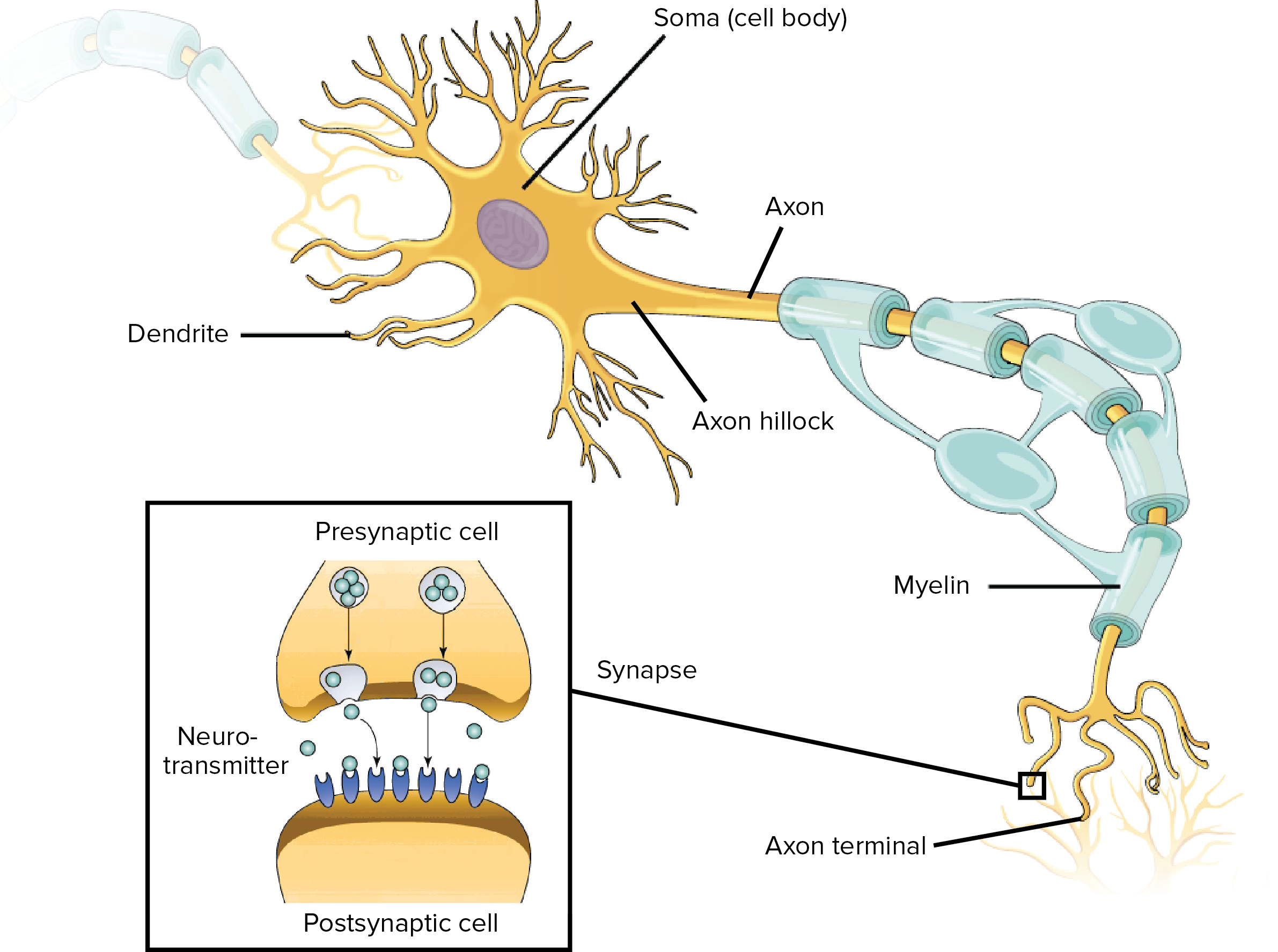
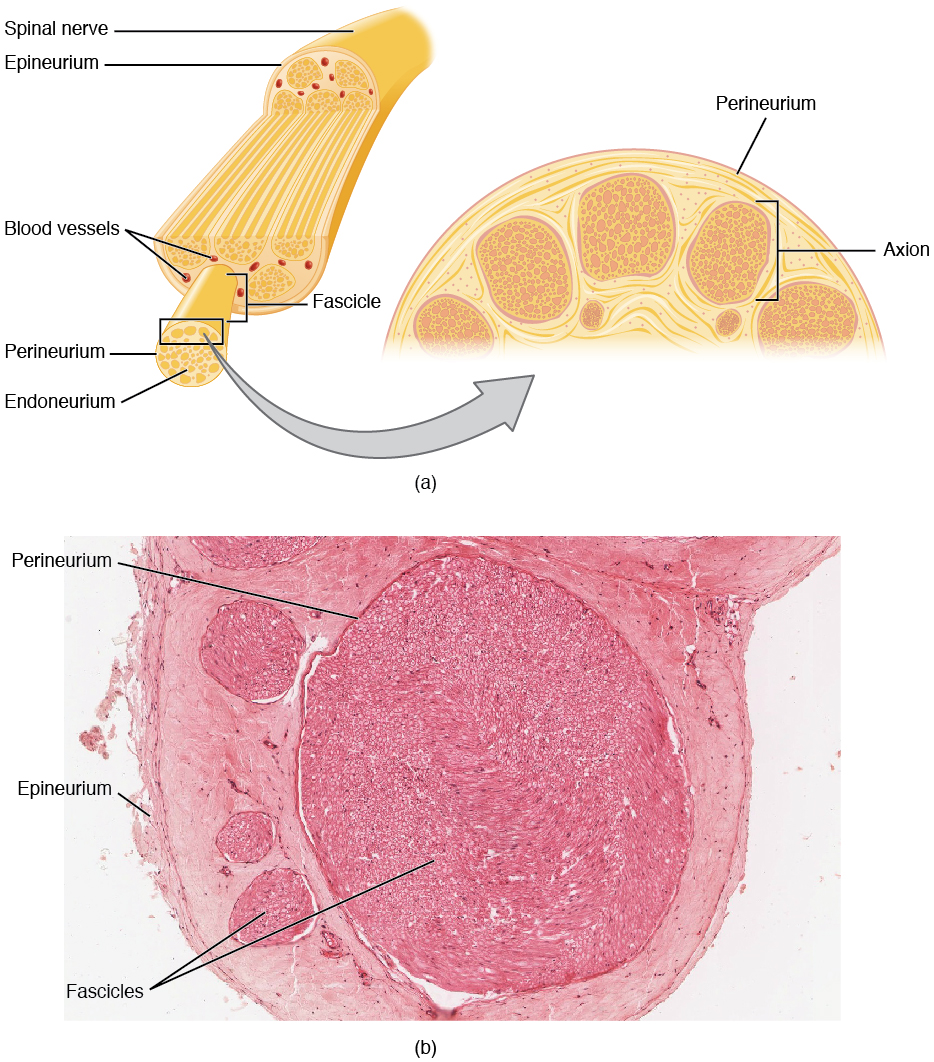
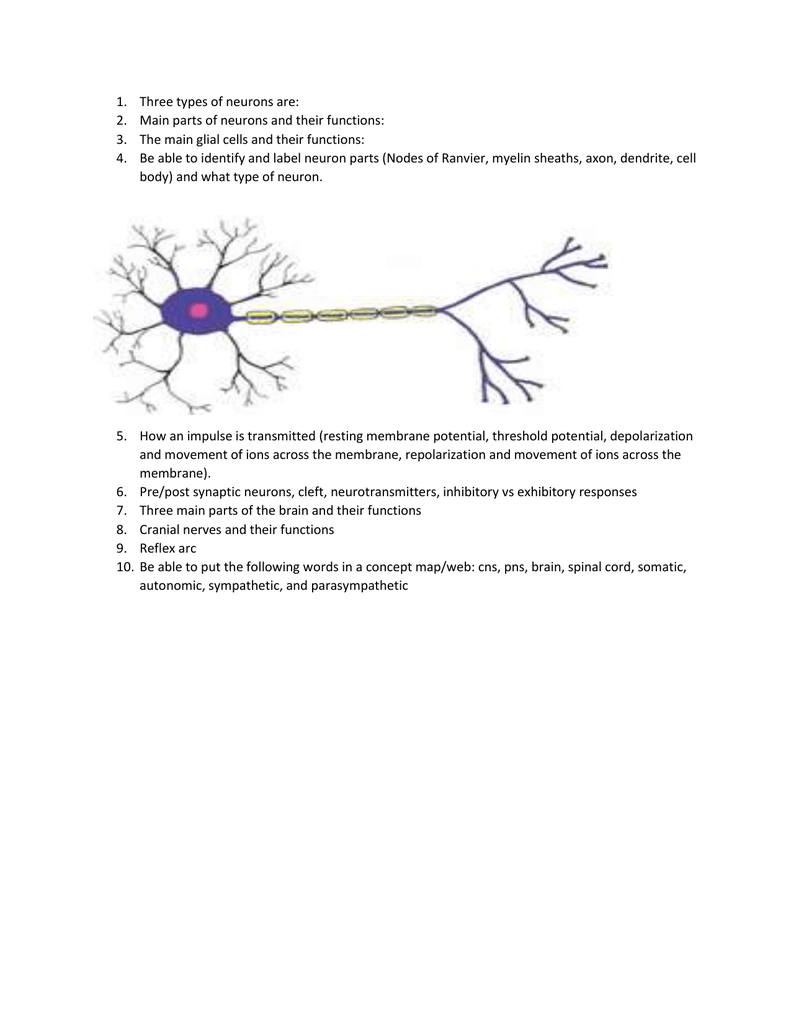


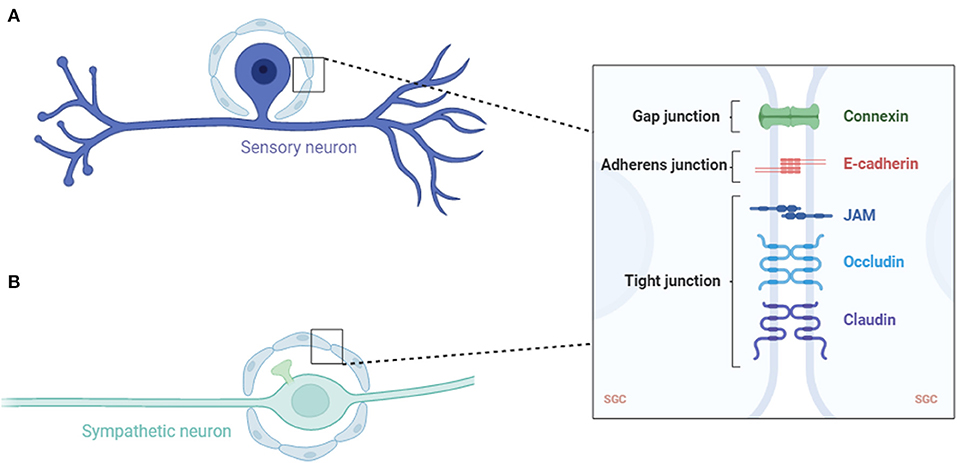

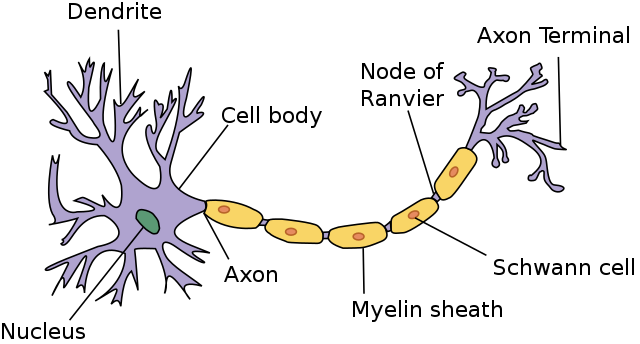




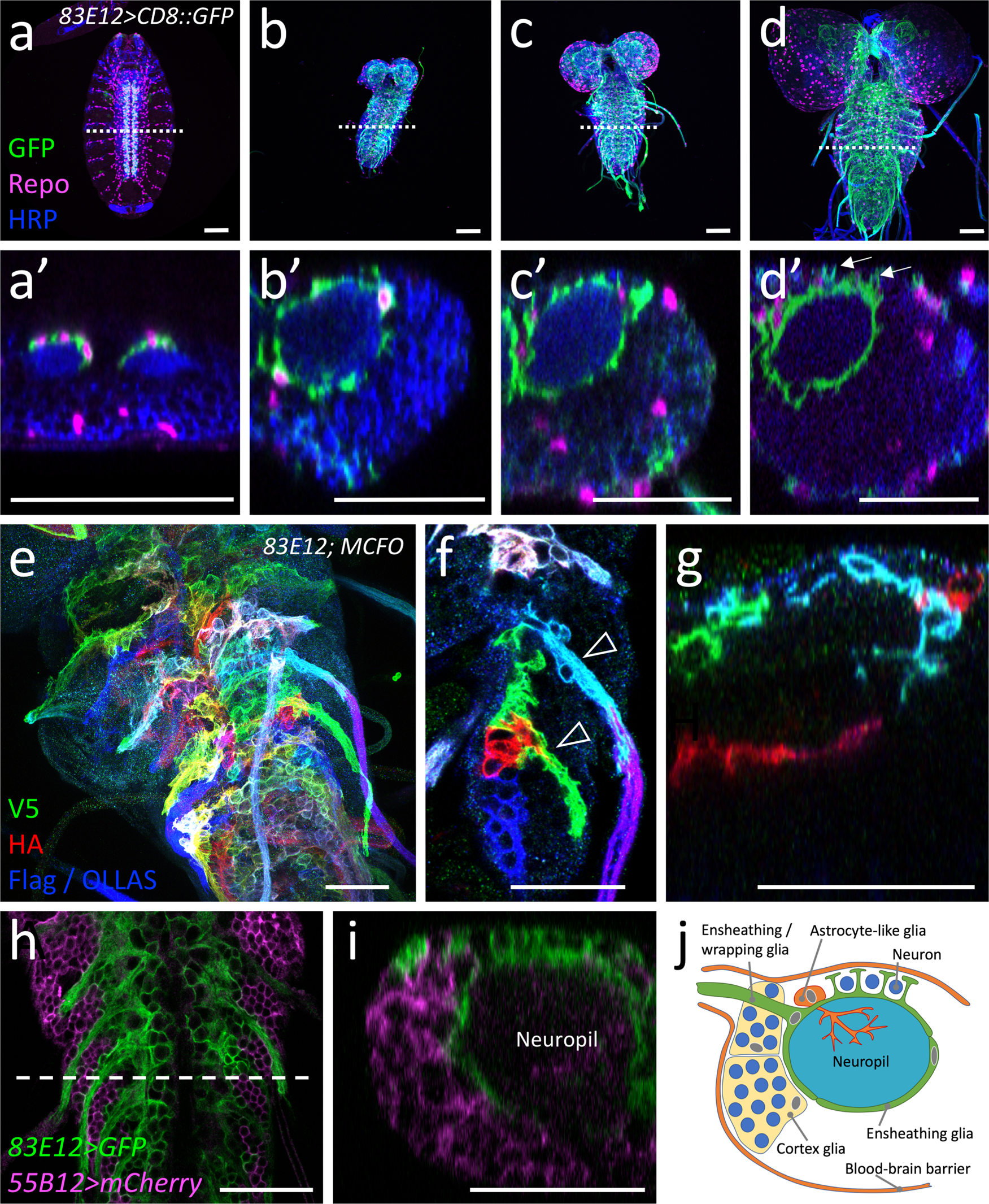

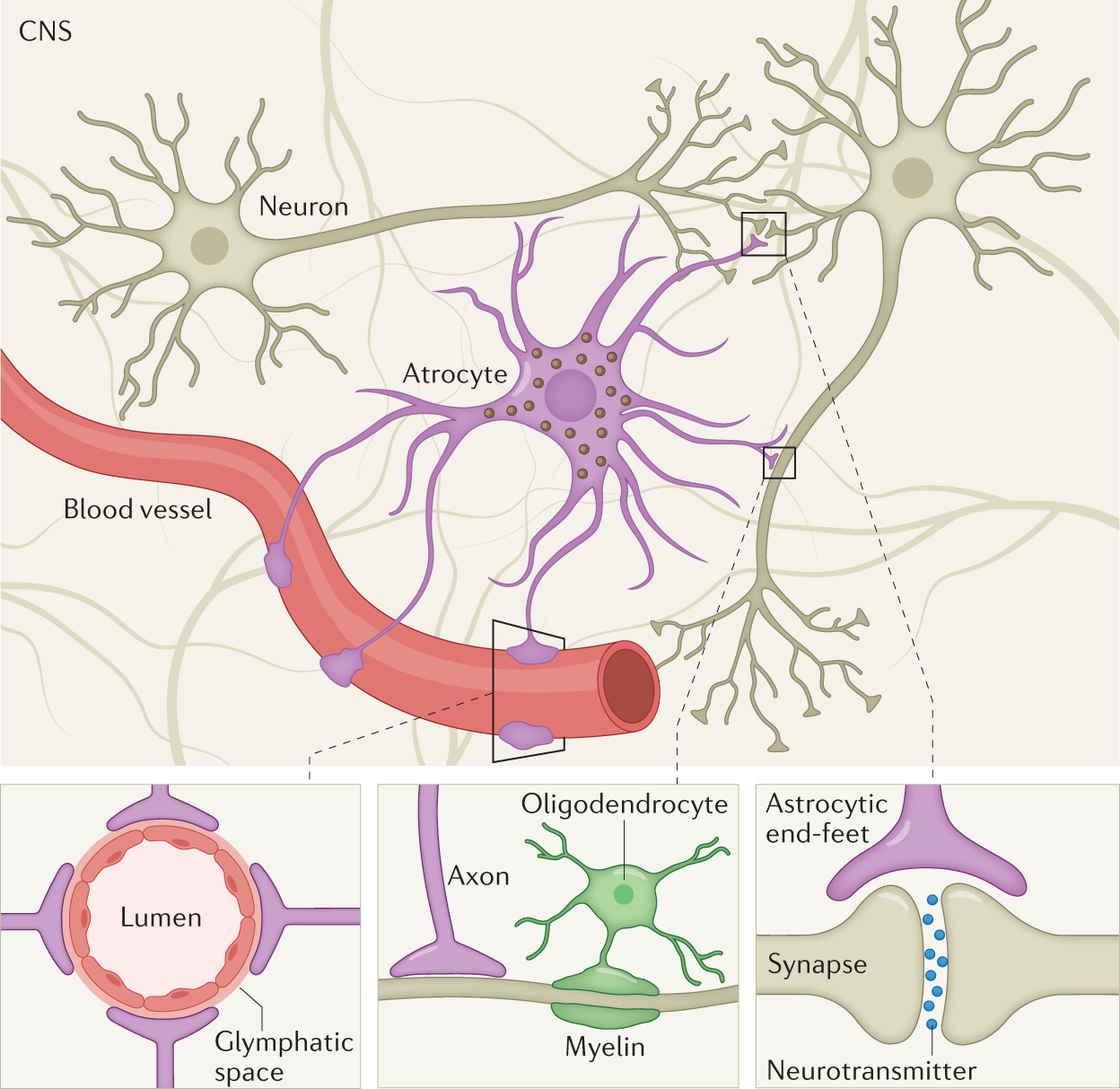
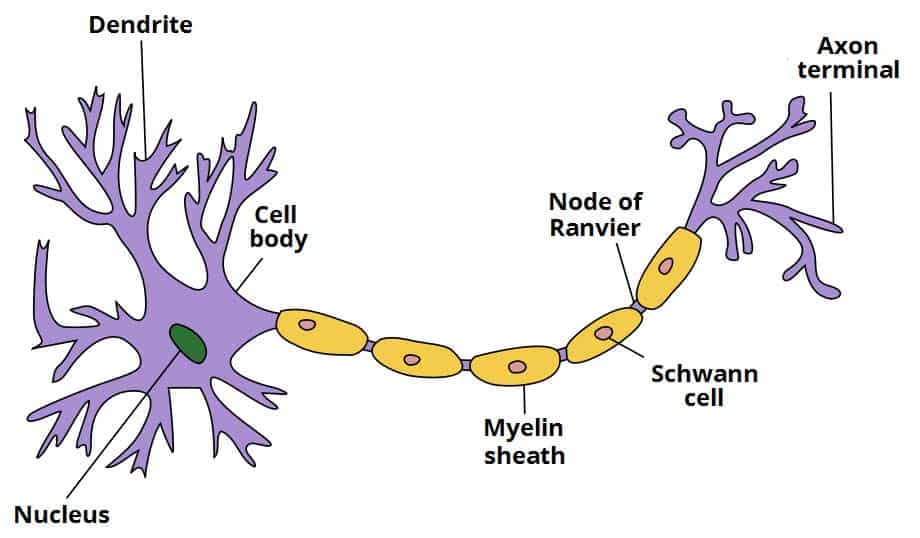

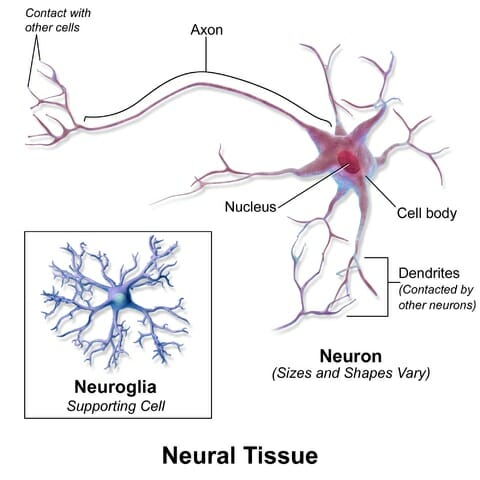
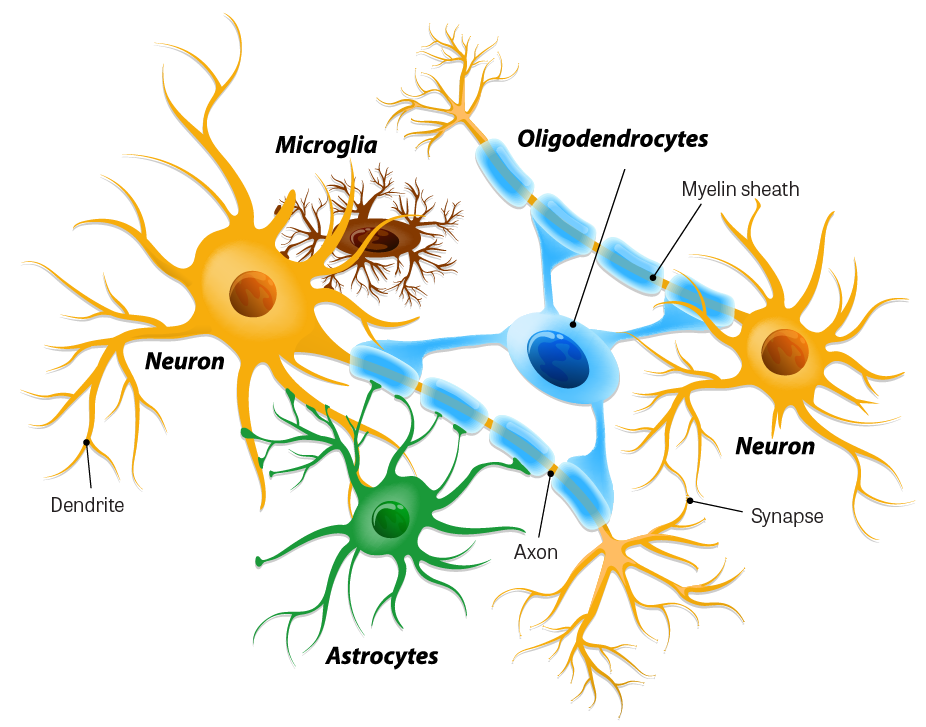
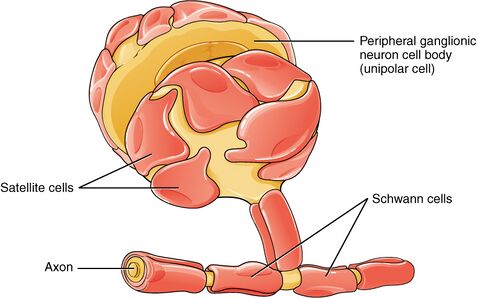

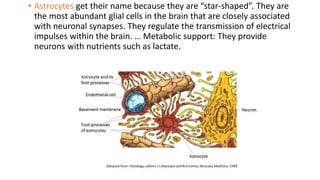
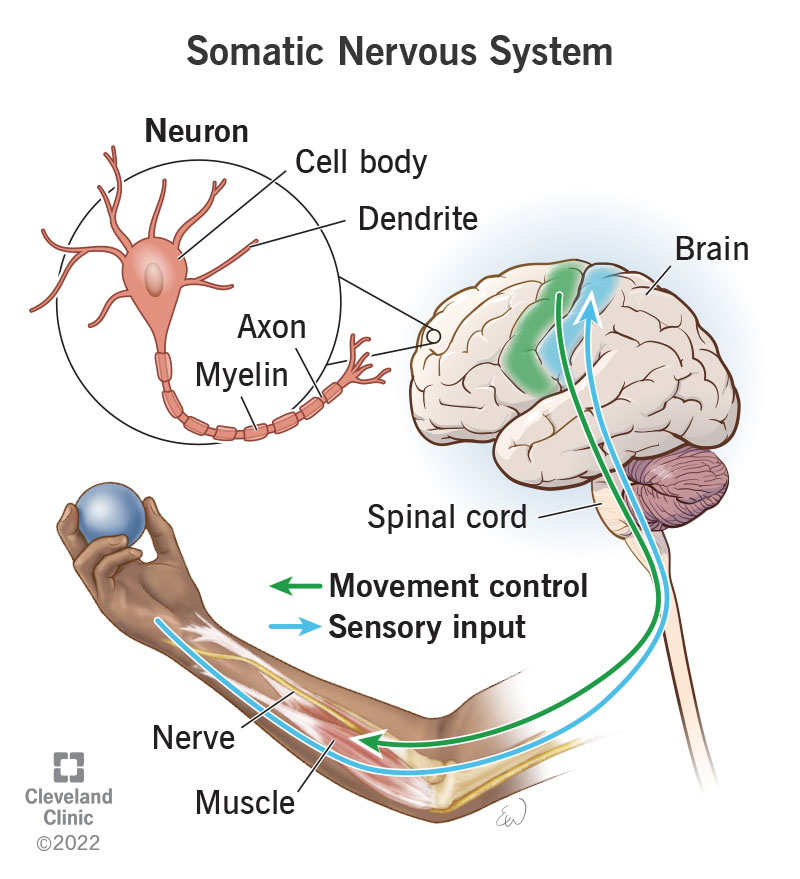





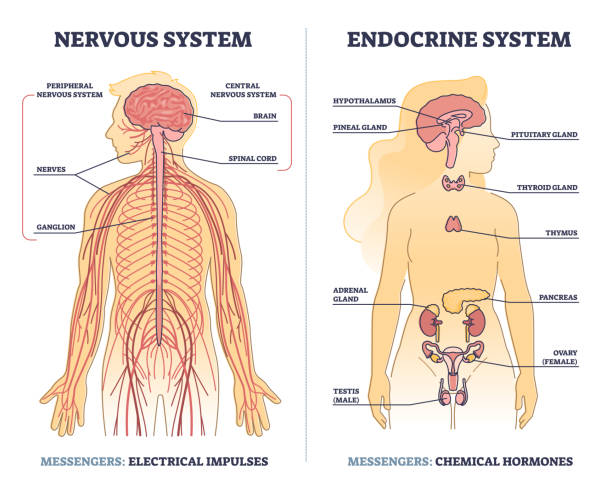


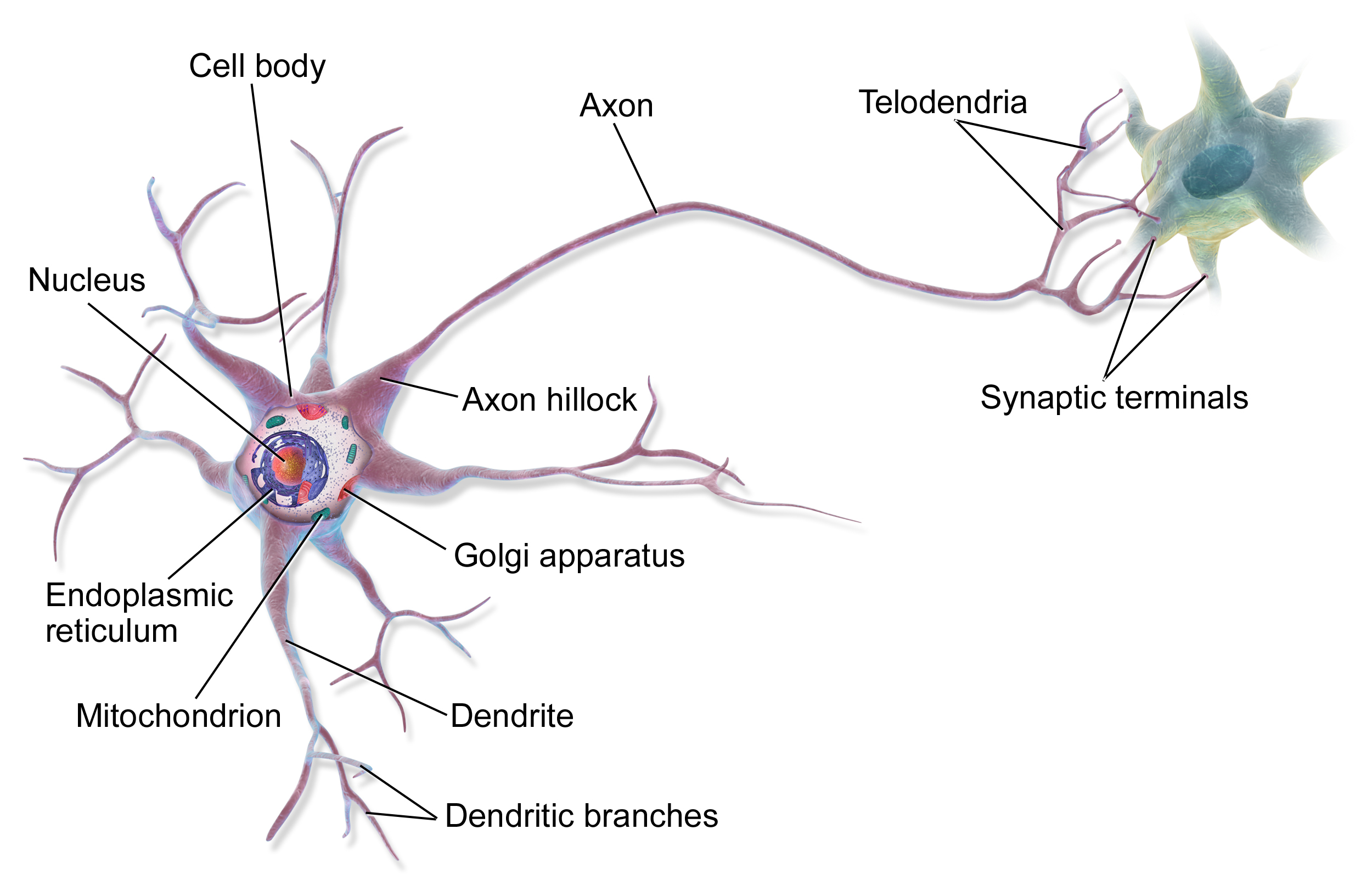

Komentar
Posting Komentar